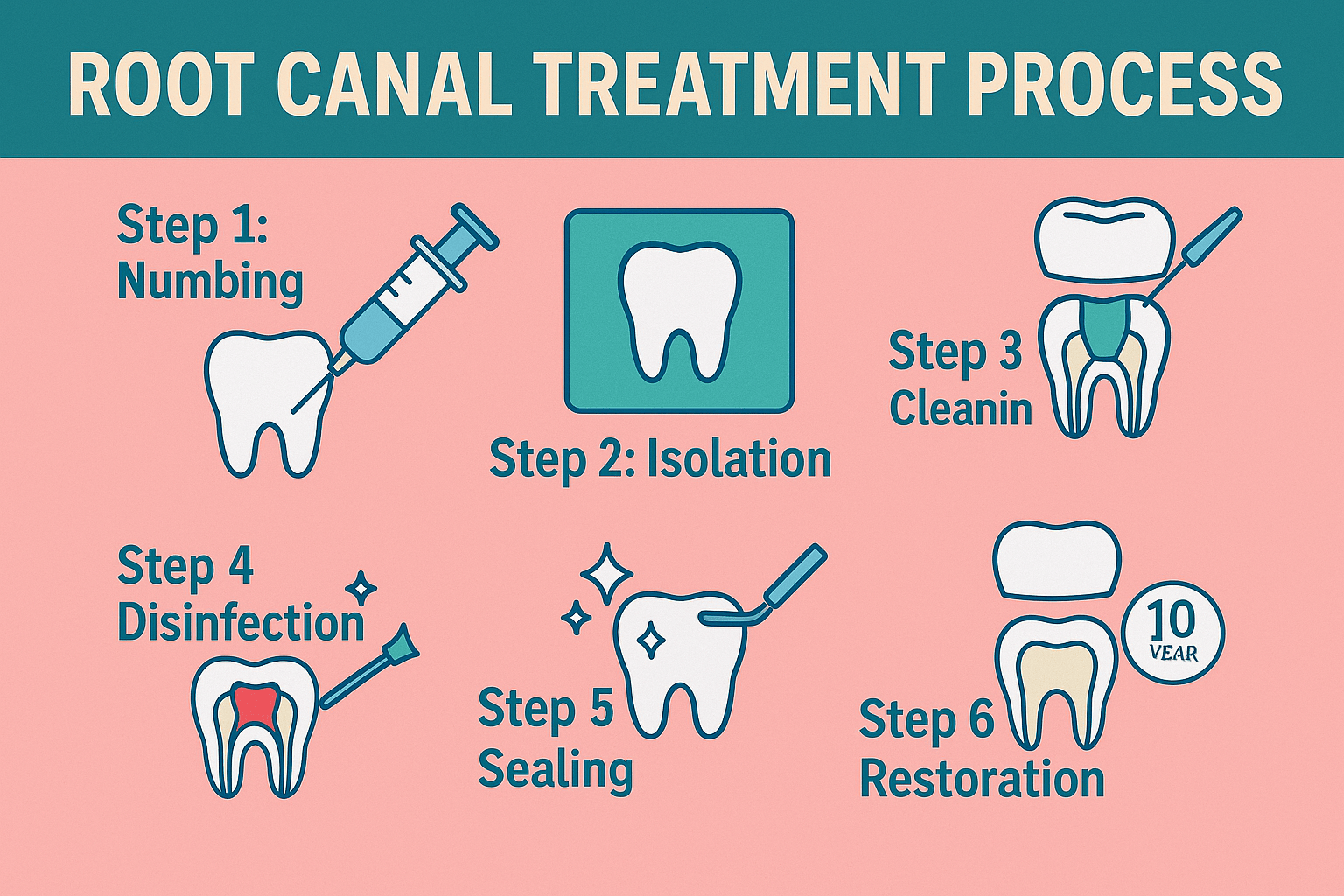Losing a tooth is quite a stressful ordeal, especially when it comes to losing a front tooth which can be quite aesthetically unappealing when you smile. Thanks to root canal treatment, however, you can treat an infected or decaying front tooth without having to extract it. In fact, this procedure is even simpler when performed on a front tooth rather than a molar tooth. Therefore, if you are experiencing symptoms such as pain, swelling, a bad taste in your mouth, and redness of gums, it is time to visit a dentist near you to determine if you are eligible for root canal treatment.
What is root canal treatment?
A root canal in York is a procedure performed to repair and essentially save an infected tooth. Infections can occur due to a cracked tooth, dental trauma, and sometimes repeated dental treatments to the same tooth that eventually disintegrates and damages its enamel. Root canal treatment is needed when the infection has grown deep into the canal that is inside the root of the tooth.
Root canal treatment removes the infected pulp that is in the root canal (under the tooth). Your dentist cleans that area, disinfects it, and seals it in a way that the infection is fully removed. This heals the infection and prevents it from spreading to other teeth. Since it does not damage the physical tooth in any way, this treatment is ideal for front teeth.
What is the process of root canal treatment?
– When you visit your dentist in York for the procedure, the first step is administering a local anesthetic to numb the affected tooth and the surrounding area. Then they use a dental dam to isolate the tooth and keep that specific area clean during the procedure.
– Next, a small drill is used to gain access to the root canal and remove the infected tooth pulp.
– That area is then fully cleaned, disinfected, and dried; after which the cleaned chamber is filled with a thermoplastic latex and sealed completely.
– Throughout the procedure, the enamel of the tooth stays intact with minimal damage.
– The final step is a dental restoration such as a permanent crown to keep the natural tooth from disintegrating later on. A root canal near you with a permanent crown lasts for over 10 years protecting the tooth from any further infections or damage.

Recovery and maintenance of a root canal on a front tooth
It is natural to feel some pain, tenderness, and soreness immediately after the procedure is completed. Your dentist will prescribe you some pain medication to make the healing process more comfortable, and also some antibiotics to avoid infection of the treatment site. Try to eat soft food for a minimum of several days after the treatment to avoid disrupting the healing process.
Remember to practice good oral hygiene habits after the treatment to prevent any complications afterward. Continue to brush and floss daily, and use an antiseptic mouthwash to clean your mouth especially after each meal. Schedule a follow-up visit with your dentist after you fully heal for a checkup, and continue your regular professional cleanings every few months along with routine visits.
While it is rare, there can be complications after root canal treatment such as a damaged sealant or teeth with more roots than the dentist anticipated, which were left untreated during the root canal therapy procedure. It is crucial to note that maintaining good oral hygiene will prevent you from having to undergo a similar dental procedure in the future.

